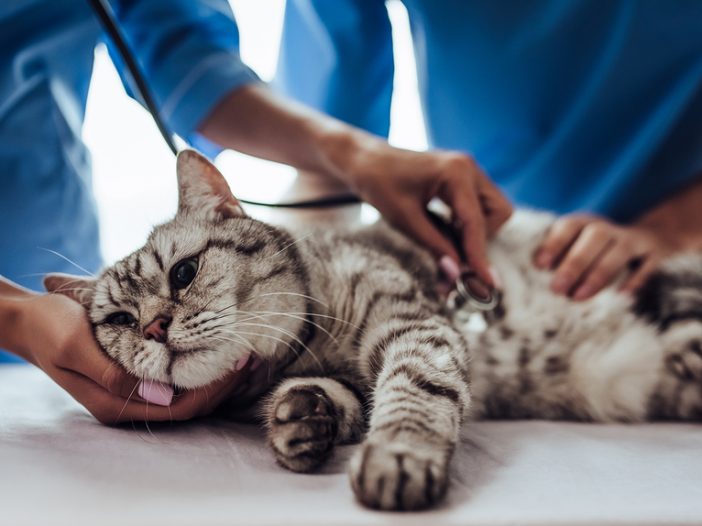
As an ER veterinarian, I have become quite skilled at quickly assessing an animal and coming up with a plan to begin patient stabilization. Unfortunately, this does not mean that I always know exactly what the underlying cause of each patient’s illness is. If a situation arises when a diagnosis has not been reached, it may be upsetting for the pet owner, but also affects me, the veterinarian.
Imagine the following scenario: Concerned owners bring a sick cat to the emergency room because she has been acting abnormally lately. Examination reveals a high fever and some lethargy but little else. We proceed with a blood panel, urine sample and X-rays and still, there is no concrete diagnosis. The owners have now spent hundreds of dollars and, while we have ruled out many possible causes for the cat’s fever, it feels to them like we have done nothing productive. How would you feel in this situation? If you answered annoyed, aggravated, frustrated, worried or any other synonym for just plain unhappy — I am with you! Welcome to the realities of medicine.
Human or animal, medicine is imperfect. Yes, there are plenty of times when an examination and history on a patient, combined with the basic diagnostics that are available to us in an ER setting, may lead to a final diagnosis. But there are also numerous times, possibly even more times, when a clear diagnosis cannot be reached. This may be because the test required to interpret the cause of illness for the pet has not yet been tried. For example, we have not performed an ultrasound or perhaps advanced imaging like an MRI. Or it may be because the animal may have something that can be very hard to diagnose with certainties such as a viral response or behavioral-based anomaly. Whatever the case may be, a lack of diagnosis leads to feelings of frustration.
In these moments when we have exhausted our readily available modes of diagnosis and have still not solved the mystery of the cause of the clinical signs, a feeling of frustration is fully justified. And believe me when I say that those feelings are felt by me as well. As a veterinarian, I feel it is my duty to give each and every animal my all and do everything that I can to put together the pieces of the puzzle that is each animal’s illness. Unfortunately I, like many in my field, also struggle with attempts to hold back feelings of inadequacy in those moments. Maybe I am missing something? Maybe there is a hint on physical examination or history that I neglected? Maybe if I had another tool at my disposal I could solve this? Maybe someone “smarter” could figure this out? Well, maybe! But maybe not! As a veterinarian, and as a person, I try to do my very best. And in those situations, despite not having all the answers, I always come up with a plan to help the animal by stabilizing, increasing comfort, and then determining how best to move forward towards obtaining a concrete diagnosis.
Medicine is imperfect, even under the best of circumstances. But rest assured that while I, your emergency veterinarian, may be unable to provide you with an exact diagnosis at the time of your pet’s presentation, I will do everything in my power to help your pet by controlling the pain, alleviating discomfort, treating the clinical signs and stabilizing him/her, as best I can. If the situation necessitates obtaining additional information, I will discuss additional options with you and we will collectively formulate a plan. Not every question can be answered. But, rest assured, in those moments of frustration that stem from a diagnosis that has not been achieved, we are all in this together.
The views and opinions expressed in this article are those of the author and do not necessarily reflect the position of the DrAndyRoark.com editorial team.

ABOUT THE AUTHOR
Dr. Chivvis is a 2011 Iowa state graduate and emergency veterinarian in Roanoke, Virginia. She completed undergraduate studies in Massachusetts and moved to Iowa for veterinary school and an additional 1 year Small Animal Rotating internship. Dr. Chivvis is strictly an emergency veterinarian, who treats dogs and cats, and strives to provide her patients the highest level of care as well as communicate with, and support, their human families.